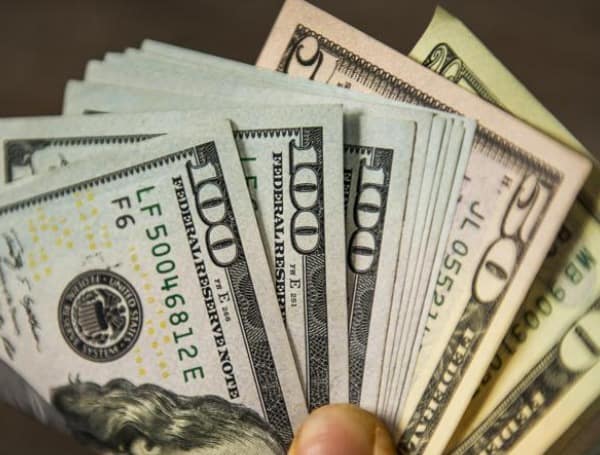As digital financial transactions increase, many Florida retail businesses would be required to accept cash as a form of payment, under a bill that continued moving forward Wednesday in the state Senate.
Despite opposition from the attractions industry, the Senate Agriculture & Natural Resources Appropriations Subcommittee unanimously supported the measure (SB 106). Sponsor Shevrin Jones, D-Miami Gardens, said the bill would address challenges faced by people who rely on paying cash.
“Many Floridians, specifically our senior citizens and minority communities rely on cash to make their payments for goods and services, either by necessity or choice,” Jones said. “Currently, individuals are unable to do this with the current landscape of some businesses.”
Read: Florida Board Of Ed Takes Aim At DEI, Sociology Course
The measure drew opposition from the Florida Attractions Association, as about 200 of its members operate as cashless or partially cashless and would view the change as a new operating expense, said Ethan Merchant, a lobbyist for the association.
Merchant said many attractions “revised their payment system during the (COVID-19) pandemic to allow for minimal interactions.”
“Since then, the customer interest in cashless payment systems has only increased,” he added.
Tim Nungesser, a lobbyist for the National Federation of Independent Business, said issues also need to be addressed about people, such as plumbers and electricians, who operate mostly out of their vehicles to perform home repairs.
“Is that person going to have to accept cash at your home?” Nungresser asked. “And if that’s the case, what’s going to happen to that van? Is every van driving around the state of Florida that has a plumber sticker on the side, is everyone going to know there is a cash box in that van?”
State and federal laws do not currently require that businesses accept cash payments, and it is unclear how many businesses Jones’ bill could affect.
Read: Florida House Poised To Pass Social Media Restrictions
While technology has increased the use of mobile wallets, which include credit and debit cards used through smartphones, the U.S. Government Accountability Office in September estimated 18 percent of American adults don’t have credit cards and must rely on cash or debit cards.
Jones’ proposal involves sales involving a “tangible good” or “service,” with the customer making the transaction in person.
The proposal, which doesn’t define “tangible good” or “service,” wouldn’t involve transactions topping $5,000 or on services from architects, attorneys, engineers, financial advisers, insurance agents, interior designers, software developers or management and other consultants.
Municipal parking facilities and parking lots that accept electronic funds transfers also would be excluded from the cash requirements, which would be overseen by the Department of Agriculture and Consumer Services.
The bill also would prohibit businesses from charging fees or placing conditions on acceptance of cash.
Jones on Wednesday changed the bill so businesses — often stadiums or entertainment parks — could set up a “a cash-to-card kiosk” that exchanges cash for loaded debit cards. That was before he said he heard the concerns raised by the Florida Attractions Association.
Jones also changed the bill to exclude parking facilities at airports and seaports.
Read: Does The Wave Of GOP Retirements Threaten Their Control Of The House In 2024?
With 85 percent of Americans having smartphones, more purchases get made digitally than ever before, a Senate staff analysis said.
“Exacerbating the situation, the COVID-19 pandemic forced many businesses around the country to alter their business models to facilitate contactless purchases, where customers could order goods online and then have them picked up or delivered,” the analysis said. “This has all contributed to a decline in the use of cash.”
Similar legislation has been filed in at least 15 other states, including Arizona, New York, Tennessee and North Dakota. While the Florida proposal would impose a civil penalty up to $2,500 for a first offense, violators in Massachusetts could face up to six months in jail.
Rep. Joel Rudman, R-Navarre, has filed the House version of Jones’ bill (HB 35). The Senate Commerce Committee also has approved Jones’ bill, which can next go to the Fiscal Policy Committee.
Android Users, Click To Download The Free Press App And Never Miss A Story. Follow Us On Facebook and Twitter. Sign up for our free newsletter.

